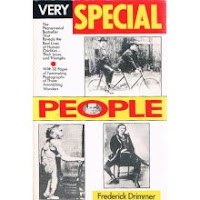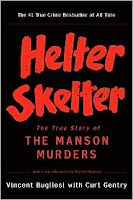I spent last night at the emergency vet office again. This time, it was my dark-haired beauty, Cisco, who was in need. I know the dark makes everything more sinister, but sometimes we cannot wait until the light of day to determine if the sunrise will banish the shadows.
I don't take books or magazines with me on these trips. (Alas, David and I have gained too much experience lately to permit us to make this decision.) I carry my cat, my credit card and enough patience to try to make it through the wait. David carries me. I can't wonder if my cat will be coming home or not: if a trip to the vet is needed at 2:30 a.m., rarely does the patient come right back home.
During those long hours, when the wonderful nocturnal lab techs are demystifying the bleeding, or vomiting, or apparent pain (why don't cats issue ticker-tapes from their heads that translate their complaints from cat to human?) — during those long, short hours I rely on the kindness of strangers' magazines.
As we sat in the small, private waiting room, in relatively — okay, nothing personal, clinic, but — uncomfortable chairs, I found myself in Afghanistan. Thanks to
National Geographic, I looked in the eyes of a woman whose husband cut off her nose as other men held her down. Her crime? She ran to a friend's for safety the last time he beat her nearly senseless.
Cisco doesn't like strangers, especially in a vet's office, and I heard him through the whitewashed walls, weakly arguing in his distinctive flat voice,
Really, I am better n — wait, what do you think you're doing with THAT? Without a second thought, I moved closer to the wall through which I heard him. I saw photos of a woman deep in labor standing on the side of the road in the middle of nowhere, in full burqa, waiting for her husband to find a working vehicle to continue their drive to the hospital.
Cisco's radiograph (when did they stop calling them x-rays?) showed one kidney larger than the other, and to confirm that
it wasn't just a trick of light or positioning, they were going to re-shoot it. In the reception area, a large dog's toenails clicked on the linoleum as his owner's voice explained his plight. I read about a 21-year-old woman imprisoned because she could not care for her husband to whom she was married when she was 12 and he was a 70-year-old paralytic.
The vet poked her head into the room: we hadn't been forgotten, she assured us, but they're waiting for his blood panel, and he is resting quietly. (I hadn't heard him for a while, so I could concur.) I read the caption of photos describing a woman brave enough to remove the burqa
and drive a car.
Cisco has what look like stones in his bladder: maybe they're blocking or passing through his urethra? In the reception area, I heard a few more canine patients: did dogs self-destruct at night? Cisco's annoyed exclamations cut through the distant din: he was not pleased that someone was touching him. I moved on to
Vanity Fair, which burst at the seams with bizarre, lofty ads for Gucci, Prada and other luxury items out of my universe.
Cisco's blood
panel was mostly normal, but his white blood cell count was off the
charts. Maybe the stones they saw in his bladder...? Only in
VF could the rich be so poor: Sean Parker, whom Justin Timberlake portrayed in
The Social Network, in real life couldn't be the way Aaron Sorkin portrayed him (though the interview presented a very similar character).
Finally, the vet could diagnose no further without the ultrasound technicians due in the clinic later that morning.
Later that morning? I was grateful there were no clocks in the room. I prefer the passing of time be marked by the number of
Travel and Leisure magazines David consumes. My pile was hefty enough, but I didn't look, couldn't look. All I wanted was to stroke and comfort my now-quiet cat while the receptionist processed the estimate into a contract.
I didn't see Cisco in the glass-front oxygen box that faced the door, which was the best visual clue of the night. I turned the corner and there he was, with the other less-urgent patients. He looked at me as only an unhappy, sick cat can.
Thanks, lady, his eyes seemed to say, and his sharp, scolding cry made me smile. When the door opened, I practically crawled into his cage and he let me stroke his warm fur, all the while complaining vociferously. "I know, I know," I told him, "I am sorry."
I wriggled out of my t-shirt and slipped it under his head in the cage, gently interrupting the nurse: "I know I may never see it again, but I want him to have it — I want him to be able to smell me in his cage." I know he will: his hypersensitive schnozz has gotten us into enough adventures to assure me it can, and hopefully will, be with him.
I kept the high-beams on as we drove home, catching the silhouette of the deer family in a neighbor's yard as we turned the corner to our own dark driveway. I always slow to a crawl when we approach the park, their home: this is their time, their space. I should not be here.
I should be in bed with my husband rolling over on his side of the bed, Cisco shifting from time to time and displacing my legs on "my" side of the bed. Instead, the house will be eerily quiet, the room surprisingly cold, and I will be fitfully sleeping until the vet calls with what I hope is good news.
The day outside my window is a glorious, sunny day. In a different universe, I'd be in the mountains, taking in fresh air and wandering along the trails. David and I would stop at Spelunker's for a burger (him) and a strawberry shortcake (me), and when we got home, we'd see Cisco waiting for us as he reclined against the pillows on the bed. But it is not this day, where I keep my cell phone inches from my hand, trying to give the doctors another half- hour, another hour, before I call. No news is good news, right? Life is exquisite when it is reduced to the size of a 13.9-pound cat.

 Despite my best efforts, I did encounter a few really good books this year. Here are some, in no particular order:
Despite my best efforts, I did encounter a few really good books this year. Here are some, in no particular order:
























